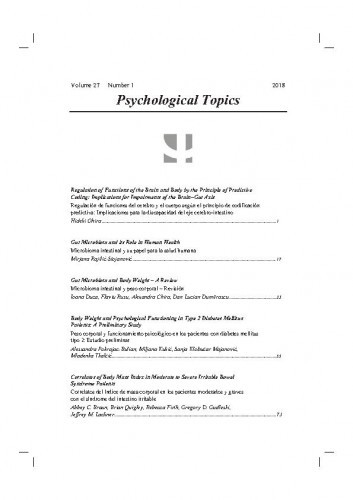The aim of this study was to assess the relationship between beliefs about the causes of illness, glycaemic control, and affective status of overweight and obese women and men with type 2 diabetes. The clinical sample included 88 patients (46 males), aged from 31 to 79 years. Patients were examined in the Outpatient Clinic for Endocrinology, Diabetes and Metabolic Diseases in the Clinical Medical Centre Rijeka. Psychological measurements included the Revised Illness Perception Questionnaire and the Hospital Anxiety and Depression Scale. Patients' body weight, height and glycaemic control (HbA1c) were also obtained.The results show that body mass index (BMI) is not significantly correlated with the level of HbA1c, nor with measured psychological variables (psychological attributions of illness, anxiety and depressive symptoms). A stronger belief that illness was caused by psychological factors is correlated with more symptoms of anxiety and depression in patients. There was a significant main effect of patients' sex on psychological attributions and anxiety symptoms. Women reported stronger beliefs that psychological factors might have been the cause of their illness and showed higher levels of anxiety symptoms than men. There was no significant main effect of glycaemic control on measured psychological variables. The results suggest that in working with T2DM patients it is important to pay attention to psychological aspects of illness, taking into account the patient's sex. Inquiring about diabetes causation beliefs and emotional status may be a way of recognizing possible barriers towards providing care.; El objetivo de este estudio fue evaluar la relación entre las convicciones sobre las causas de enfermedad, control glucémico y estado afectivo de mujeres y hombres con sobrepeso y obesos que sufren de diabetes tipo 2. La muestra clínica incluyó 88 pacientes (46 hombres), a la edad de entre 31 y 79 años. Los pacientes fueron examinados en la Clínica de consulta externa de endocrinología, diabetes y enfermedades metabólicas del Centro hospitalario clínico de Rijeka. Mediciones psicológicas incluían el Cuestionario Revisado de Percepción de Enfermedad y la Escala de Ansiedad y Depresión Hospitalarias. También se obtuvieron el peso corporal, altura y control glucémico de los pacientes. Los resultados demuestran que el índice de masa corporal (IMC) no fue significativamente correlacionado con el nivel de HbA1c, ni con las variables psicológicas mesuradas (atribuciones psicológicas de la enfermedad, ansiedad y síntomas de depresión). Convicción más fuerte que la enfermedad fue causada por los factores psicológicos fue correlacionada con más síntomas de ansiedad y depresión en los pacientes. Hubo un efecto principal significativo del género de paciente en las atribuciones psicológicas y síntomas de ansiedad. Las mujeres mostraron convicciones más fuertes que los factores psicológicos podrían causar su enfermedad y mostraron también niveles más altos de síntomas de ansiedad que los hombres. No hubo un efecto principal más significativo del control glucémico en las variables psicológicas. Los resultados sugieren que trabajando con los pacientes con la DMT2 es importante prestar atención a los aspectos psicológicos de enfermedad, teniendo en cuenta el género de paciente. Examinar las convicciones sobre las causas de diabetes y el estado emocional podría posibilitarnos reconocer posibles obstáculos en proporcionar cuidados.
Sažetak

 Psihologijske teme : 27,1(2018) / glavna i odgovorna urednica Barbara Kalebić Maglica.
Psihologijske teme : 27,1(2018) / glavna i odgovorna urednica Barbara Kalebić Maglica.